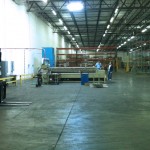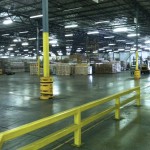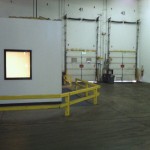A plastic part by any other name would still be a plastic part, wouldn’t it? Yes it would. But the way those plastic parts produced; either by molding plastic parts or by machining plastic parts are dramatically different. Those differences in the process of making plastic parts can result in big differences in lead times, cost, and quality. Below are things to consider when looking at how to manufacture plastic parts and some answers that may help you to decide.
How Many Plastic Parts do you Need to Make?
MOLDED: Molded Plastic parts have been around since the first machine for the process was patented in 1872 by John Wesley Hyatt and his brother Isaiah so its easy to see how this became one of the standard processes for creating plastic parts. Mold machines are used to run mass produced plastic parts from tooth brushes to auto parts and everything in-between. Creation of the mold(s) costs thousands of dollars, requires time up front to make the mold(s) and the molds require maintenance over their life and storage when not in use.
MACHINED: Depending on the project, volumes from 25 to 5,000 parts can often be machined more cost effectively than molded. For small parts, you may have a lower final cost by using high performance screw machines that can run circles around expensive multi-cavity molds. This means shorter lead times than molded parts and little up front cost. Machined parts don’t require secondary machining to clean a part once it is ejected from the mold.
Will You Need to Make Changes to Your Part Design?
MOLDED: Parts made from molds require that the mold be made first which is more time and expense up front. In addition a mold will require maintenance over it’s service life and storage space when it isn’t in use. Changes to a mold are costly in terms of time and dollars to either change or make a new mold, depending on the changes needed.
MACHINED: Machined parts allow for shorter lead times and flexibility in making design changes because they are run directly from a CAD file. Overall, machining can be used to create very complex parts including parts with undercuts and thick walls and the materials are more homogenous across the length and width of the part.
How Important Are Tight Tolerances and Dimensional Stability?
MOLDED: Every plastic behaves differently. But in general plastic parts made from molds may not be as dimensionally stable as machined parts. There is more chance the parts will not be as homogeneous across the length and width of a part. The molding process is not ideal for large parts or where there are thick walls. Tolerances of +/- .005″ are typically the best that can be achieved in molded parts. This compares to +/- .001″ for machined parts.
MACHINED: Many of today’s high performance engineering plastics, such as DuPont Vespel, PEEK, PBI or others can take extreme temperatures of 250 or even 450 degrees and remain dimensionally stable. Many of these materials are also chemical resistant. Additionally machined parts have less internal stress and tolerances of +/- .001″ or better can be achieved.
How Large or Complex Are Your Parts?
MOLDED: Small to mid-size plastic parts can work well. Large volumes can be run fast. But large plastic parts with thick walls, or complicated undercuts can be an issue for mold design. Materials cooling at different temperatures within a mold can result in more internal stress and a less homogeneous material. Undercuts can pose a mold design challenge with how to release the part from the mold. Plastic parts fresh from the mold may require secondary machining to remove flash, parting lines, or ejector marks, adding to production time and cost.
MACHINED: Large parts and parts with complicated undercuts can be made quickly and efficiently by machining processes. Thick cross sections will have higher, more consistent mechanical properties. Again, because there is no mold to be made, the up front investment and lead time is much shorter. Machining also handles threading extremely well and machined parts will have no parting line, ejector marks, or flash. The availability and selection of engineering plastics means many prototypes can be made in production-equivalent materials. Plastics are more often being found to be a good alternative to metals. They can often be machined on the same equipment and many high temperature engineering plastics offer features such as lightweight, flexibility, high strength, resistance to corrosion, excellent durability, high heat tolerance and chemical resistance. Some plastics, such as those for bearings even require little or no lubrication making them even more cost effective on the service end.
The moral of this blog – a plastic part by any other name is still a plastic part but how you get to create that part could make all the difference in the world. Molded plastic parts have their place, but before going down the path of investing in molds it may be worth a little time considering the questions in this blog and determining if molded or machined is the best option.
See you in the blogosphere again soon!
Lisa Anderson
Marketing Manager
ThyssenKrupp Materials, NA
AIN Plastics Division





